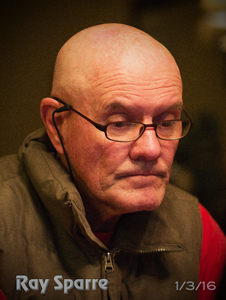
Greetings, dear ones.
No jog this morning. I had to get off at 7:30am with the sawmill in tow—headed to Gladstone to slice up what I was told were a couple maple logs. They were actually oak logs. My experience there was miserable. There were all kinds of nails, wires, and fasteners in it. My metal detector was able to locate some. But there was way too much stuff down deep inside. I used up all my blades. I finally gave up and left my mill there with plans to return on Monday. Whew!
Now I need to get out the door to go to jail. I go in there periodically with a friend to beat on my guitar and lead some singing, and present a Bible lesson. Hope it goes well.
Blessings on your evening.
Blessings. Ray
This is part of an orientation class Jesus had with His disciples before sending them out on a special outreach campaign—to travel and preach the Biblical Gospel in all the towns and villages of Israel. Their basic prescribed message was this: “Heaven’s kingdom realm is accessible, close enough to touch” (10:7, The Passion Translation). To add emphasis to the message, they were given special miracle-working powers over sickness, demons, and death. This proclamation of the Gospel was to be a special conversion opportunity for hearers throughout Israel.
My attempt at processing this revelation insight leads me toward a clearer understanding concerning the standards God uses in judging His human creatures. Opportunity is featured here to be a big factor. If this is a standard God still uses, I’m inclined to equate it with access to the Word of God, and/or exposure to a presentation of the Biblical Gospel. It seems clear that such opportunity has responsibility and accountability attached to it. If that is true, I have to believe that Americans, with their abundant access to Bibles and the preaching of the Gospel, are basically without excuse for not knowing. And to not know, or to not act upon that knowing, is to fall pitifully short of one’s related responsibility before God.
Obviously, all those people from ancient Sodom and Gomorrah were all dead and gone when Jesus made this pronouncement. Right? Not quite. Jesus makes reference to “the day of judgment,” which can only refer to an event still future, at which time final individual determinations will be made, even for people dead and gone.
I can’t avoid this conclusion: Seeking first the Kingdom of God and His righteousness (Matthew 6:33) is (1) a sacred privilege and opportunity, (2) a sacred personal choice, and (3) a sacred responsibility for which we will all be held accountable.